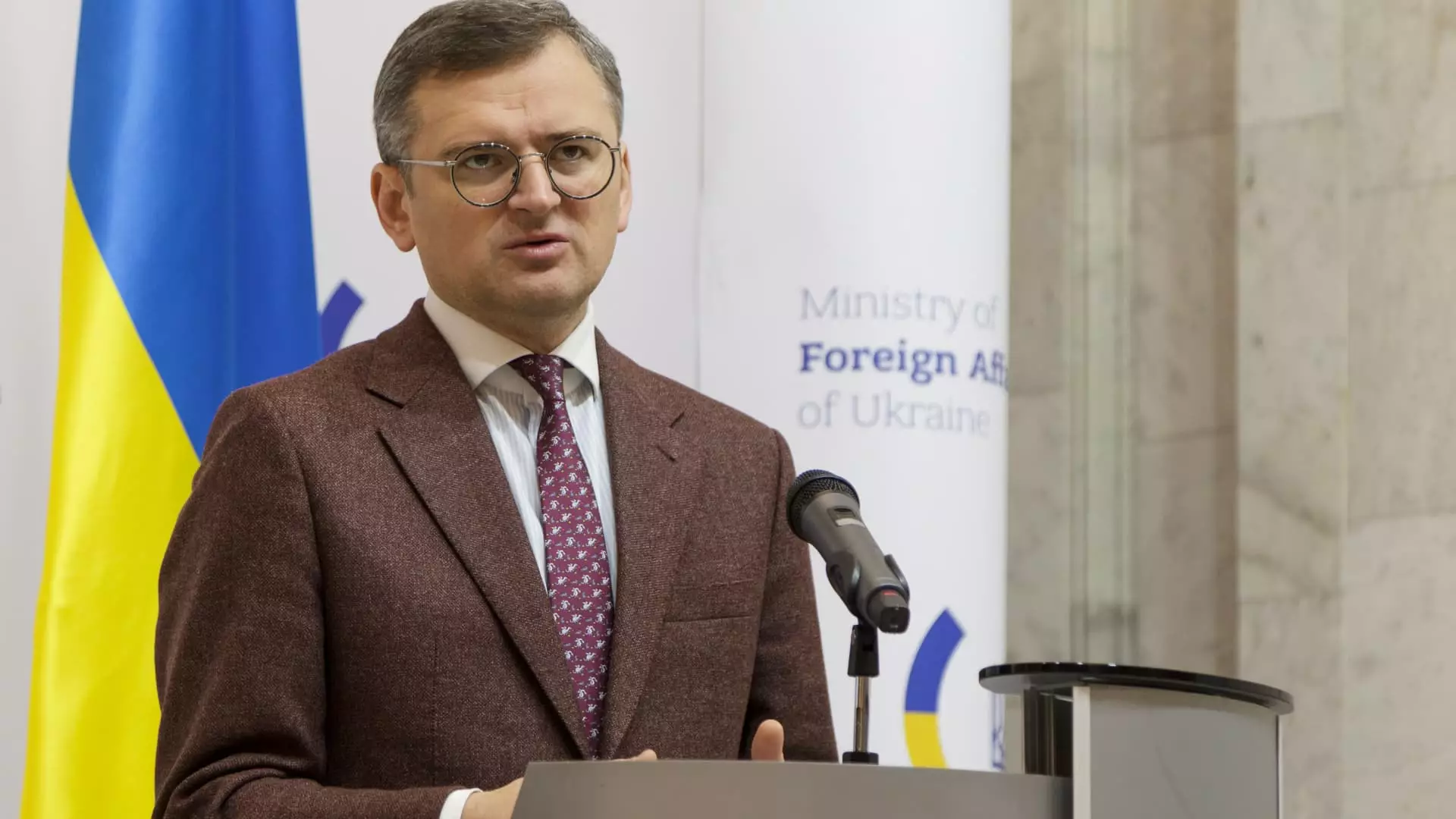The ongoing conflict between Ukraine and Russia has sparked fears that extend well beyond the borders of these nations, potentially threatening the stability of Europe as a whole. Dmytro Kuleba, the former Foreign Minister of Ukraine, has sounded the alarm regarding the implications of a Ukrainian defeat. He articulates a dire scenario: a failure in Ukraine’s defenses could lead to the manifestation of violence on the streets of European cities. This assertion, compounded by geopolitical shifts, highlights urgent concerns for the maintenance of peace and security within the European Union.
Kuleba provides insight into the current state of President Vladimir Putin’s military capabilities, suggesting that while Putin might not have the capacity to engage in multiple wars simultaneously, he does possess significant resources to concentrate on one front at a time. The fall of regimes he has supported, such as Bashar al-Assad in Syria, exemplifies the shifting dynamics in the region. With Ukraine potentially falling, Kuleba warns that the next target could be Europe itself, indicating a progressive expansion of aggression. Such a perspective necessitates a serious reassessment of European defense strategies and the implications of inaction.
For years, Ukraine has pursued NATO membership as a crucial form of protection against Russian advances. Kuleba emphasizes that while putting Ukraine’s NATO aspirations temporarily on hold may seem like a strategy for brokered peace, it would ultimately fail to avert future conflicts. The notion of security guarantees alone, he argues, falls short of the robust support needed to deter further Russian ambitions. Existing agreements and commitments from various countries, including the United Kingdom, have not sufficed in ensuring Ukraine’s safety. Thus, the dialogue about NATO membership becomes not just a political issue but a matter of urgent national survival.
The complications surrounding NATO enlargement are intensified by the requirement for unanimous approval among existing member states. This creates a precarious balancing act where the interests of individual members can hinder an effective collective response to emerging threats. The scenario is further complicated by the political landscape in the United States, especially with the potential return of Donald Trump to the White House.
Kuleba acknowledged Trump’s commitment to pursuing peace talks, referencing a recent meeting in Paris that featured discussions on a ceasefire in the longstanding conflict. However, Kuleba underscores that the effectiveness of such negotiations hinges on altering Putin’s current approach to diplomacy. The Ukrainian perspective on peace is staunch: any settlement that compromises territorial integrity, as dictated by the constitution, is off the table. Kuleba’s assertions spotlight the complexity involved in navigating the politics of peace, where every concession could be perceived as a weakness by aggressors.
Kuleba’s resolve contrasts sharply with critiqued actions from the Biden administration, particularly regarding military support for Ukraine, such as the provision of ATACMS missiles. Trump’s rebellion against this policy, labeling it an escalation rather than support, raises questions about the efficacy of Western responses to Russian aggression. Kuleba has made it clear that Ukraine cannot remain passive while under continuous attack. His stance that an escalation in defense is warranted reflects a recognition of the harsh realities faced by Ukraine—where proactive measures are essential to counteract Russian advances.
As the conflict continues to escalate, culminating in large-scale attacks aimed at crippling Ukraine’s energy infrastructure, the stakes for both Ukraine and Europe become increasingly dire. The international community must take heed of Kuleba’s warnings, recognizing that the outcome of this war could redefine security across Europe and beyond. If Ukraine is unable to maintain its sovereignty, the repercussions will reverberate through the European landscape, fundamentally altering the current balance of power.
As tensions flare and the specter of conflict looms larger, it is imperative for European leaders to unite in support of Ukraine. Failure to do so may not only endanger the Ukrainian people but also place the entire continent in jeopardy. The defense of Ukraine is thus not just a regional issue but a crucial element in maintaining peace and security in Europe—a notion that should command the urgent attention of policymakers across the board.


Leave a Reply